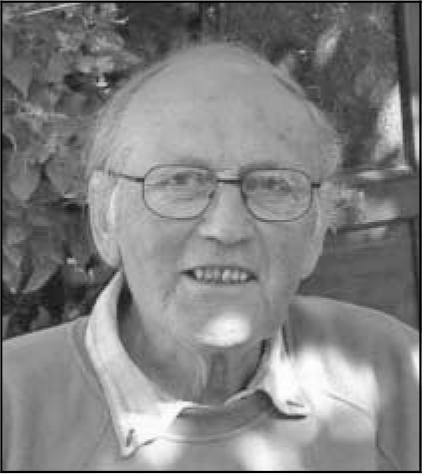
Formerly consultant psychiatrist at Banstead, Long Grove and Royal Richmond Hospitals
Malcolm was born in 1927 and brought up in Filey, Yorkshire. Educated at Bridlington Grammar School for Boys, he then went up to Leeds University to study medicine, and in 1951 he graduated MBChB as well as obtaining the conjoint qualification MRCS and LRCP. Then, after 2 years as a medical officer in the Royal Air Force, he chose to train as a psychiatrist, which he did under Sir Martin Roth.
In the late 1960s he was appointed consultant psychiatrist at Banstead Hospital, Epsom, and his out-patient clinic work was done at Richmond Royal Hospital. When Banstead closed, Malcolm transferred to Long Grove Hospital in Epsom, and continued his out-patient clinic and day-hospital work in Richmond. Everywhere he worked he was respected by both his colleagues and his patients (his out-patient clinic often not ending until 20.30). He was involved in Richmond and Barnes ‘Mind’ until long after his retirement and also continued voluntary work with Shenehom Housing Association in Barnes.
Because of his lifelong interest in archaeology, he took early retirement in 1990 and became a student again, obtaining a BSc in archaeology and later an MA in cognitive evolution. He travelled to the Cradle of Humankind in South Africa and took part in field trips to Turkey, the Massif Central and Tautavel in France, and Boxgrove, just outside Chichester. Retirement also gave him time to travel widely in India, Indonesia, Turkey and Morocco.
For the past 20 years he had spent a lot of time in his house in France with his loving wife Elly. Malcolm became disabled by a rare condition, inclusion body myositis, diagnosed in 2005. This little-known condition gradually weakened him and his mobility was greatly impaired, but he never complained. Academically, he became an even more avid reader. He kept himself up to date with the latest research in evolution-based anthropology, genetics and neuroscience. He also continued to attend the 3-monthly luncheons of the ‘Long Grove Veterans’ (retired medical colleagues) in pleasant restaurants and pubs in London and Surrey. He last attended in December 2011. He died quietly at the end of January 2012. He was devoted to his wife Elly, his daughter Eve, son David, his granddaughters, and stepson James.



eLetters
No eLetters have been published for this article.